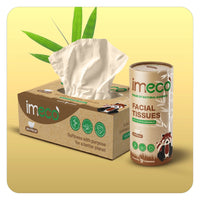if your next order could create ripples of change far beyond your doorstep?
Imagine buying something simple – a bamboo toothbrush or a reusable bamboo coffee cup – but knowing it helped reduce plastic waste, offset carbon emissions, and empower farmers or artisans in rural India. That’s not just shopping, that’s meaningful living.
Here’s what you need to know about the evolving Indian ecosystem, about conscious consumerism, and how you can be a part of it.
Conscious Consumerism in India: What’s Changing?
Let’s pause for a moment. Think about your last grocery run or online shopping cart. Did you check where your food came from or how your skincare was made?
If yes, you’re part of a quiet revolution unfolding across India. According to a recent PwC survey, 60% of consumers now opt for sustainable products. Even more striking, 70% people consider checking food labels before they buy. This shift isn’t just about trends or aesthetics. It’s about people realising that what they buy shapes the world they live in.
Moreover, globally, the green technology and sustainability market was valued at USD 17.21 billion in 2023, and is projected to grow to USD 105.26 billion by 2032, with a CAGR of 22.4% (Fortune Business Insights). Sustainability isn’t a niche industry segment anymore; it’s becoming the backbone of how businesses operate.
But here’s the catch - while awareness grows, trust is dwindling. A market research study revealed that 71% of Indian consumers have encountered greenwashing. In simple words, brands that fake sustainability risk alienating the very consumers they’re trying to attract.
How to Buy More Meaningfully This Month
So, how can you, as a conscious consumer, make your purchases truly meaningful this month?
First, look beyond labels and pretty packaging. Anyone can claim “eco-friendly” or “sustainable”, but genuine brands provide proof. Third-party certifications such as GOTS for organic textiles, FSC for sustainable wood and bamboo, and Fairtrade for ethically sourced food and apparel indicate that sustainability is embedded in their practices, not just their marketing.
Second, choose materials that create real impact. Take bamboo, for instance. The Indian bamboo market is projected to reach USD 8,349.7 million by 2030, with a steady annual growth rate.
Having said all these, one might ask why bamboo? Because it’s strong, naturally regenerating, requires minimal water, and is fully biodegradable – an ideal alternative to wood and plastic.
And as this is July, we’re celebrating Plastic Free July with a gesture that makes every purchase more meaningful. This month, with every Ecoconsious order, you’ll receive free Zinnia seeds. Why Zinnia? Because they’re easy to grow, they add vibrant colour to your surroundings and attract pollinators that support local biodiversity.
Because sustainability isn’t just about swapping plastic for bamboo. It’s about creating life, nurturing hope, and making choices that ripple through your home, community, and planet. When you shop with Ecoconsious, you’re not just buying a product – you’re planting seeds of change. This Plastic-Free July, let’s make every choice count with small, intentional actions that build a truly meaningful life.
































